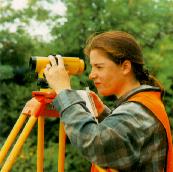School of Engineering


Head of School : G. Mac Michael
Secretary : Ms. A. Duggan
Course Data - Places Available, Cut Off Points and Grant availability.
Departments:
 Building & Civil Engineering
Building & Civil Engineering
 Electronic Engineering
Electronic Engineering
 Mechanical & Industrial Engineering
Mechanical & Industrial Engineering
 Engineering Trades
Engineering Trades
 Engineering Degrees
Engineering Degrees
 Connemara West Centre, Letterfrack
Connemara West Centre, Letterfrack

The profession of engineering touches on all aspects of everyday life. The roads we travel on are designed and constructed by civil engineers; cars are designed and manufactured by mechanical and production engineers. Electronics engineers design control circuitry for a wide range of systems from watches to computers. Engineers play a vital role in the production of the food we eat. They make the agricultural equipment that sows and harvests the raw material as well as the processing and packaging equipment that turns it into a food product. They are also engaged in the actual production process. An engineering training is also an excellent foundation for a career in management.
There are many classifications of engineering, the major ones being: Civil, Electrical, Mechanical and Chemical. Further subdivisions of these include production, manufacturing, agricultural and aeronautical. Careers span the spectrum of process, manufacturing and service sectors in a multitude of functions such as design, draughting, planning, testing etc.
The School of Engineering has four constituent departments: Building & Civil Engineering, Electronic Engineering, Mechanical and Industrial Engineering and Engineering Trades.
The Building & Civil, Electronic, and Mechanical and Industrial Departments offer full-time third level courses at National Certificate, Diploma and Degree level. National Certificate courses consist of two years full time study, National Diploma courses require an additional year post National Certificate and the Degree is four years full-time. Currently, most of the courses operate on a semester basis i.e. for examination purposes the academic year is divided in two. Progress to Semester II depends on the performance in the preceeding Semester. All Engineering certificate and diploma holders (this includes Electronics) are eligible for admission to Engineering Technician grade of the Institution of Engineers of Ireland.
International student exchange has become an increasingly significant activity. The school has established links with colleges in other EC countries by means of ERASMUS programmes. Many opportunities exist for students to participate in grant aided study in other European institutions. Students of this College have gone to countries such as France, Greece, UK and Germany. Additionally, this College has hosted visiting students from several EC Countries.
The Department of Engineering and Building Trades caters for approximately five hundred apprentices every year, either on block, split-block or day-release basis. Apprenticeship training courses cover the Engineering Trades of Electrical and Motor Engineering and Building Trades courses cover Carpentry and Joinery.
The School of Engineering is gradually converting all certificate, diploma and degree courses to a semester basis. As a result, subjects within courses are liable to change title and content.
Applicants interested in following an apprenticeship programme should contact the local F�S office or training centre.
Most of the NCEA-accredited courses are also available under the ACCS scheme (see "Application Procedures").
Graduates with industrial experience may register for the School�s M.Sc. in Advanced Engineering Techniques.









 Building & Civil Engineering
Building & Civil Engineering Electronic Engineering
Electronic Engineering Mechanical & Industrial Engineering
Mechanical & Industrial Engineering Engineering Trades
Engineering Trades Engineering Degrees
Engineering Degrees Connemara West Centre, Letterfrack
Connemara West Centre, Letterfrack



